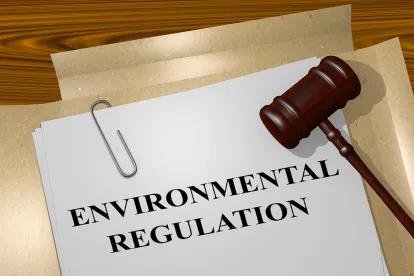Background
The European Commission (EC) is undertaking an aggressive overhaul and expansion of the Ecodesign Directive to allow for the future regulation of the environmental sustainability of a wider range of products as part of a broader effort under the European Green Deal. The proposed Directive called the Ecodesign for Sustainable Products Regulation (ESPR) would establish a new framework for product design, reporting, and labeling requirements, while strengthening market surveillance efforts. As has been the case under the existing Directive, the Commission will be authorized to issue product-specific regulations as well as horizontal regulations that cut across multiple product categories. Companies that manufacture, import, distribute or sell products in the European Union will face a number of significant new requirements, including the need for all covered products to be equipped with a “digital product passport”. The Commission is also proposing a crackdown on the destruction of unsold products, as part of its broader effort to achieve a circular economy. While prior iterations of the Ecodesign Directive were limited first to energy-using products and then to energy-related products, the new Directive abandons any such limitations, opening the door to the regulation of a wide range of additional product categories.
The ESPR contemplates two categories of requirements: performance requirements and information requirements. The performance requirements are rules focused on products achieving a certain performance level such as durability, energy efficiency, recyclability, environmental footprinting, and waste generation. Information requirements are focused on details pertaining to product performance and must be supplied with the product, in labeling, manuals, and/or product passports.
Digital Product Passports
Digital Product Passports are a new tool created by the Directive to enhance the end-to-end traceability of a product. The goal of Digital Product Passports – machine-readable digital codes, accessible by scanning a data carrier – is to provide consumers access to product information to help them make informed choices, allow repairers or recyclers access to relevant information, and improve enforcement.
Product-specific rules to be enacted will designate the information that will be required in the product passport.
Anti-circumvention
ESPR expands on anti-circumvention language already in force under the existing Ecodesign Directive. These provisions are aimed at preventing manufacturers and importers from selling products designed to be able to detect they are tested and able to alter their performance during the test. ESPR’s anti-circumvention provision also prohibits software or firmware updates that worsen product performance once on the market or in service without the explicit approval of the user. Further, updates cannot worsen the product to the extent that the product becomes non-compliant with the requirements under the test. These provisions establish a continuing obligation for regulated businesses to ensure that products that were compliant when first introduced into the EU market remain compliant after firmware or software updates.
Self-Regulation
Under the existing Ecodesign Directive, certain product categories (e.g. imaging equipment) are self-regulated via a Voluntary Agreement reached between industry and other interested stakeholders and the European Commission. The new Directive seeks to encourage additional self-regulation, as long as it achieves the same objectives as mandatory regulations would, while also imposing new reporting and monitoring requirements. Note that even as the Commission seeks to encourage self-regulation, it has separately announced that the imaging equipment Voluntary Agreement will not be extended, and that such equipment will be subject to a mandatory regulation going forward.
Ecodesign Forum
The ESPR establishes an expert group, known as the Ecodesign Forum, comprised of Member States’ representatives and interested parties involved with a product group. The Forum’s purpose is threefold:
-
To define and review performance and information requirements,
-
To examine the effectiveness of the established market surveillance mechanisms, and
-
To assess self-regulation measures.
Market Surveillance
Responding to criticism that current market surveillance efforts are failing to deter non-compliance, the new Directive would strengthen and further coordinate market surveillance efforts across all member states.
Member states must submit plans every two years including the products or requirements identified as priorities and the market surveillance activities planned to reduce non-compliance for those products or requirements. Because market surveillance to date has been opaque and inconsistent across member states, the new directive would require each member state plan to detail the number of checks to be performed during the period covered by the action plan. The EC may, in the future, mandate a minimum number of checks that Member States must complete. The EC will use information reported by the Member States to publish a report that includes the number of checks performed, the levels of non-compliance identified, and the nature and severity of the penalties imposed during the previous two years.
Unsold Products
The new Directive seeks to discourage and potentially eventually prohibit the destruction of unsold goods. The Directive will increase transparency by requiring large business that discard unsold products to disclose the number of products they discard per year, the reasons for discarding, and information on the amount of discarded products that they have provided for preparing for re-use, remanufacturing, recycling, energy recovery and disposal operations in line with the waste hierarchy. This information must be available on either a freely accessible website or through other means. While small businesses are typically exempted from these requirements, the Directive prohibits large companies from selling to small companies to have them destroy the products. Critically, the Directive allows for the EC to ban the destruction of unsold goods outright in the future.
Working Plan
The Ecodesign Directive requires the Commission to set regulatory priorities through regularly updated rolling Working Plans that take stock of progress made and include indicative priorities for new energy-related product groups to be considered. The Ecodesign and Energy Labeling Working Plan 2022-2024 (Working Plan) was adopted by the EC on March 30, 2022. It focuses on energy-related products and lays out the priorities and planning for future regulation. Once the Ecodesign for Sustainable Products Regulation has been adopted, energy-related products will be wrapped up into broader ESPR Working Plans.
Under the Working Plan, the EC will initiate exploratory studies of:
-
Low-temperature emitters,
-
Professional laundry appliances,
-
Professional dishwashers,
-
Universal External Power Supplies (EPS), and
-
Electric vehicle chargers.
The EC will give priority to those products with the highest potential for energy and/or material efficiency such as. The EC also plans to adopt regulations regarding eco-design requirements and an energy labeling scheme for tablets and phones by the end of 2022. The regulations will include energy efficiency and material efficiency (durability, reparability, upgradability, and recycling).







 />i
/>i
